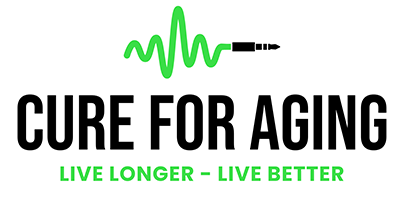A Glimpse into the Fascinating Future of Life Extension
The quest for the proverbial fountain of youth has been a long and storied journey. In recent years, however, anti-aging research has made significant strides, with many exciting discoveries and breakthroughs. This article will take a closer look at the seven most promising anti-aging research efforts, which have the potential to revolutionize our understanding of aging and potentially lead to extended human lifespans.
- Senolytics: Targeting Senescent Cells
One of the key contributors to aging is the accumulation of senescent cells in our body. These cells, which have lost their ability to divide and function properly, can cause inflammation and contribute to age-related diseases. Senolytics are a class of drugs that selectively target and eliminate senescent cells. Research into these drugs has shown promising results in animal models, improving healthspan and reducing age-related diseases.
- Telomere Extension: Preserving Chromosome Integrity
Telomeres are the protective caps at the ends of chromosomes that shorten as cells divide. When telomeres become critically short, cells enter a state of senescence or die. Telomere extension aims to lengthen these caps, preserving chromosome integrity and cellular function. Researchers are studying various methods to achieve this, including gene therapy and small molecules. Early experiments in mice have shown increased lifespan and reduced age-related decline.
- NAD+ Restoration: Rejuvenating Cellular Energy
NAD+ (nicotinamide adenine dinucleotide) is a crucial molecule in our cells that plays a key role in energy production and DNA repair. As we age, NAD+ levels decline, leading to a decrease in cellular function. Researchers are investigating ways to boost NAD+ levels in the body, including through supplementation and gene therapy. Recent studies have shown that restoring NAD+ levels can improve healthspan and delay the onset of age-related diseases.
- mTOR Inhibition: Slowing Down Aging
The mechanistic target of rapamycin (mTOR) is a protein that regulates cell growth, division, and metabolism. Overactivation of mTOR has been linked to aging and age-related diseases. Researchers are exploring the use of mTOR inhibitors, like rapamycin and its derivatives, to slow down aging. Studies in animals have shown that mTOR inhibition can extend lifespan and improve healthspan, suggesting potential benefits for humans.
- Cellular Reprogramming: Turning Back the Clock
Cellular reprogramming is a process that can revert adult cells to a more youthful, pluripotent state. By introducing specific factors into cells, researchers can essentially turn back the clock on cellular aging. This technique has shown promise in regenerating tissues and organs in animal models, and may eventually be used to reverse age-related decline in humans.
- Stem Cell Therapy: Repairing and Regenerating Tissues
Stem cells have the unique ability to differentiate into various cell types, making them a promising tool for repairing and regenerating tissues damaged by aging. Researchers are exploring the use of stem cell therapies to treat age-related diseases and conditions, such as heart disease, Parkinson’s, and macular degeneration. These therapies have shown promise in early-stage clinical trials, offering hope for future advancements in anti-aging medicine.
- Caloric Restriction Mimetics: Extending Lifespan through Diet
Studies have shown that caloric restriction (reducing calorie intake without causing malnutrition) can extend lifespan and improve healthspan in various organisms. Researchers are now searching for compounds that can mimic the effects of caloric restriction, allowing people to reap the benefits without drastically reducing their calorie intake. These compounds show promise in extending lifespan and improving healthspan, but more research is needed to determine their safety, efficacy, and optimal dosage in humans.

